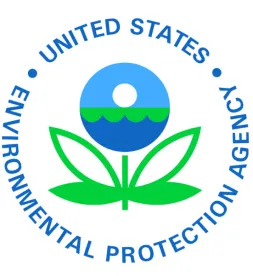For the first time ever, the U.S. EPA has brought mobile source pollution, including pollution caused by aftermarket defeat devices, to the forefront of its enforcement efforts. In its own words, the U.S. EPA “is vigorously pursuing enforcement against those who violate the defeat device and tampering prohibitions” of the Clean Air Act (CAA). While at least some sellers, manufacturers, distributors and customers of aftermarket parts that can affect emissions have not been targeted by the U.S. EPA in past years, such companies are unlikely to continue to escape enforcement under this new wave of enforcement by the U.S. EPA. On June 7, 2019, the U.S. EPA issued a memorandum identifying its National Compliance Initiatives (“NCIs”) for fiscal years 2020-2023. One of the six NCIs identified by the U.S. EPA, and never previously identified by the U.S. EPA, is “Stopping Aftermarket Defeat Devices for Vehicles and Engines.” As part of the basis for implementing this NCI to stop the “manufacture, sale, and installation” of defeat devices, the U.S. EPA noted that it has found numerous companies that have manufactured and/or sold both hardware and/or software specifically designed to defeat required emissions controls on vehicles and engines.
The Federal Rule
Section 203(a)(3) of the CAA prohibits, among other things, the manufacture, sale, installation or offer to sell a defeat device, which is defined as any part or component of a motor vehicle where a “principal effect of the part or component is to bypass, defeat, or render inoperative” any emission control device, where the person knows or should know that such part or component is being offered for sale or installed for such use or put to such use 1. In addition to this federal prohibition on defeat devices, numerous states have imposed similar prohibitions on defeat devices, creating the possibility for dual enforcement at both the state and federal level.
The California Rule
In fact, California law is even more strict than federal law. Section 27156(c) of the California Vehicle Code provides that “[n]o person shall install, sell, offer for sale, or advertise any device, apparatus, or mechanism intended for use with, or as a part of, a required motor vehicle pollution control device or system that alters or modifies the original design or performance of the motor vehicle pollution control device or system.” In other words, the sale (or even advertisement for sale) of any device that “alters or modifies” the design or performance of a motor vehicle’s pollution control system is generally barred under California law, regardless of whether its principal effect is to bypass or defeat an emission control device.
An exception exists under California law, where a company can apply for an Executive Order from the California Air Resources Board (“CARB”) for a particular device (or software) to be exempt from the prohibition of Section 27156(c) 2. The process for applying for an Executive Order can be time-consuming and costly, as it involves emissions testing to ensure that the device (or software) does not adversely affect a motor vehicle’s emissions. Unless and until an Executive Order is obtained from CARB, selling, installing or advertising for sale any device or software that alters or modifies the design or performance of a motor vehicle’s pollution control system remains unlawful in California, even if a manufacturer has obtained independent emissions testing demonstrating that the device or software has no harmful effect on a vehicle’s emissions.
Dieselgate
While the prohibitions on defeat devices under both federal and state law are not new 3, Volkswagen AG recently admitted to secretly installing software on approximately half a million purportedly “clean diesel” vehicles that allowed the vehicles to pass emissions tests while emitting up to 40 times the allowable amount of nitrogen oxide during normal road use. As a result, Volkswagen has agreed to pay a total of more than $25 billion to settle claims from the U.S. EPA, state regulators, owners and dealers. In addition to paying more than $10 billion to compensate owners of certain of these vehicles (primarily by buying back the vehicles at a cost of between $5,100 and $10,000 above the estimated value of each vehicle), Volkswagen also agreed to pay more than $4.3 billion to settle civil and criminal charges from the U.S. Department of Justice.
In addition, in August 2020, Daimler AG, the parent company of Mercedes-Benz, agreed to settle cases brought by several federal and state regulatory agencies, as well as a civil class action lawsuit, based on allegations that the emission control systems in approximately 250,000 of its diesel cars and vans in the United States constituted defeat devices that emitted excessive amounts of nitrogen oxide. The proposed settlement with regulatory agencies is expected to cost Daimler AG $1.5 billion. Additionally, the proposed settlement of the class action lawsuit is expected to cost an additional $700 million.
Following the Volkswagen “Dieselgate” scandal, the U.S. EPA has clearly shown an increased interest in targeting companies for violating the prohibition on defeat devices. As part of its enforcement efforts, the U.S. EPA has targeted companies that manufacture engine control module (“ECM”) tuners without an executive order from CARB. ECM tuners reprogram the engine’s fueling strategy, usually to increase power, fuel economy, or both. However, the U.S. EPA has pursued enforcement of tuners based on allegations that any gains provided by these products come at the expense of higher emissions of regulated air pollutants.
In addition, CARB continues to aggressively enforce Section 27156 by pursuing enforcement actions against aftermarket parts manufacturers and other companies that sell, install or advertise tuners and other devices that can affect a vehicle’s emissions without an Executive Order. In December 2019, CNS Motors, Inc. agreed to pay a total penalty of $154,300 to settle allegations by CARB that CNS Motors had sold at least 450 aftermarket vehicle parts without an Executive Order in violation of Section 27156. Additionally, Fiat Powertrain Technologies Industrial S.p.A agreed to a $6.4 million penalty in April 2019 to settle allegations of emissions-related violations that included unapproved repairs and modifications to vehicle engines after the vehicles were sold to address an engine oil leakage problem.
Everyone in the Chain of Commerce Is a Potential Target
However, the U.S. EPA and CARB have not limited their enforcement efforts to only original equipment manufacturers or companies that manufacture aftermarket parts and ECM tuners. For example, in 2017 the U.S. EPA settled with Abbyland Trucking, a service truck repair center and refrigeration transport company, regarding allegations that Abbyland had sold and installed ECM tuning products by Performance Diesel on its own trucks and those of its customers, with some instances of the installation dating back as far as 2011. Ultimately, Abbyland paid a $75,000 civil penalty and initiated a recall program to uninstall these ECM tuning products on its own trucks and on its customers’ trucks at Abbyland Trucking’s cost. Similarly, Freerksen Trucking, Inc., a trucking company that modified emissions controls on 22 heavy-duty diesel trucks in its own trucking fleet through the use of ECM tuning products, recently paid a $50,000 civil penalty to settle defeat device allegations by the U.S. EPA.
Likewise, AZAA Investments Inc. (f/k/a AutoAnything, Inc.) paid $1 million in 2019 to resolve allegations by CARB that it advertised and sold 4,000 aftermarket parts, including engine performers, air intake systems and catalytic converters, that modified emissions components. Similarly, in 2018, JEGS Automotive Inc. agreed to pay $1,700,500 to settle allegations that it sold aftermarket performance parts affecting emissions, including engine performers, air intake systems and throttle bodies, for which it had not obtained an Executive Order.
These settlements demonstrate that not only manufacturers, but also retailers, such as AutoAnything and JEGS Automotive, and customers, such as Abbyland Trucking and Freerksen Trucking, are at risk for defeat-device enforcement liability. In a press release announcing the AZAA Investments settlement, the Enforcement Chief of CARB confirmed as much by stating that “everyone in the chain of commerce - that is manufacturers, distributors, dealers, installers, and retailers - has an important responsibility to ensure that all aftermarket products they offer for sale have first been exempted by CARB.”
The Cost of Noncompliance Continues to Rise
In many instances, enforcement actions by the U.S. EPA and CARB are not brought until years after the violations occur, which allows companies to commit numerous violations—and incur very large enforcement liabilities—prior to realizing the magnitude of the problem. Moreover, based on legislative amendments to Section 43016 of the California Health and Safety Code that took effect on January 1, 2017, the maximum civil penalty for selling an aftermarket emissions-related part without an Executive Order is now $37,500 per part, or seventy-five (75) times higher than the prior penalty per part of $500. For companies that have sold, manufactured, installed, distributed or advertised tuners or other emissions-related aftermarket parts after January 1, 2017 without an Executive Order, the potential penalties for such violations could be devastating.
A New Threat
In addition to increased enforcement efforts by federal and state regulators, companies in the aftermarket parts industry face a new threat—citizen enforcement actions under the CAA. In 2019, a federal court in the District of Utah granted partial summary judgment in favor of plaintiff Utah Physicians for a Healthy Environment (“Utah Physicians”), a nonprofit organization, in a CAA citizen enforcement action against Diesel Power Gear LLC and several other companies and individuals for defeat device violations 4. In granting summary judgment for Utah Physicians, the court rejected the defendants’ argument that Utah Physicians lacked standing because the defendants, by installing and selling aftermarket defeat devices on diesel trucks that caused excessive emissions of nitrogen oxides and particulate matter, discharged pollutants which contributed to the injuries suffered by Utah Physicians. In addition to finding the corporate defendants liable, the court further imposed liability on officers of the companies under the “responsible corporate officer doctrine,” which imposes liability on a corporate officer if he or she had knowledge of facts giving rise to the violation and had and failed to exercise authority to correct such violations. Ultimately, in March 2020, the court entered judgment against the defendants, including civil penalties for violating Section 203 of the CAA, a permanent injunction barring defendants from violating certain subsections of Section 203 and an award of reasonable attorneys’ fees for the plaintiff. 5 The defendants have appealed the district court’s judgment and the lawsuit remains pending on appeal before the Tenth Circuit.
Importantly, the Utah Physicians court found that a citizen enforcement action could be maintained for defeat device violations of Section 203 of the CAA 6. Under Section 304(a)(1) of the CAA, a citizen may institute an enforcement action against any person who has violated “an emission standard or limitation under this chapter” or an “order issued by the Administrator or a State with respect to such a standard or limitation.” 7 In Utah Physicians, the court reasoned that the defeat device prohibitions in Section 203 “are emission standards or limitations because they ‘limit[] the quantity, rate or concentration of emissions of air pollutants on a continuous basis[.]’” 8 This reasoning appears to conflict with a recent Ninth Circuit decision that held that a citizen plaintiff did not have the right to intervene in a civil U.S. EPA enforcement proceeding because defeat device prohibitions in Section 203 of the CAA “do not appear to be ‘emission standard[s] or limitation[s]’ or ‘orders issued . . . with respect to’ such standards or limitations within the meaning of Section 304(a)(1)”. While only time will tell whether other courts will follow Utah Physicians, this decision will likely embolden citizens seeking environmental enforcement to bring future citizen suits under the CAA for mobile source pollution and/or defeat device violations.
Preparing for a New Reality
In light of the rapidly escalating risks of enforcement actions from state and federal regulators and the commensurate dramatic rise in penalty amounts, as well as the possibility of private citizen enforcement suits, companies that manufacture, sell, install, advertise, distribute or use non-exempted aftermarket or other parts that have the possibility of affecting the emissions of diesel trucks or other mobile sources should take proactive steps to reduce the likelihood of their committing future defeat device violations and to mitigate potential liability from past violations. A recommended approach is for companies to engage outside counsel to conduct an internal compliance audit of affected manufacturing operations to ensure current compliance with the CAA and to review potential liability for prior defeat device violations. The potential for large fines and the increasing emphasis by federal and state regulators on pursuing any and all violations makes the ultimate consequences of committing ongoing violations simply too large to ignore.
1 42 U.S.C. § 7522(a)(3)(B).
2 Cal. Code Regs., tit. 13, § 2222(e).
3 For example, in 1998, seven major diesel engine manufacturers agreed to spend an aggregate total of more than $1 billion, including $83.4 million in civil penalties, to resolve allegations that they installed defeat devices in heavy-duty diesel engines.
4 Utah Physicians for a Healthy Environment v. Diesel Power Gear LLC, 374 F. Supp. 3d 1124, 1131-39 (D. Utah 2019).
5 Utah Physicians for a Healthy Environment v. Diesel Power Gear LLC, No. 2:17-cv-00032-RJS, at 32-33 (D. Utah March 6, 2020).
6 Id. at 32-33; Utah Physicians, 374 F. Supp. 3d at 1130 n.1.
42 U.S.C. § 7604(a)(1).
7 Utah Physicians for a Healthy Environment, No. 2:17-cv-00032-RJS, at 32-33 (D. Utah March 6, 2020) (quoting 42 U.S.C. § 7602(k)).
8 In re Volkswagen “Clean Diesel” Marketing, Sales Practices, & Prods. Liability Litig., 894 F.3d 1030, 1041 (9th Cir. 2018).




 />i
/>i

